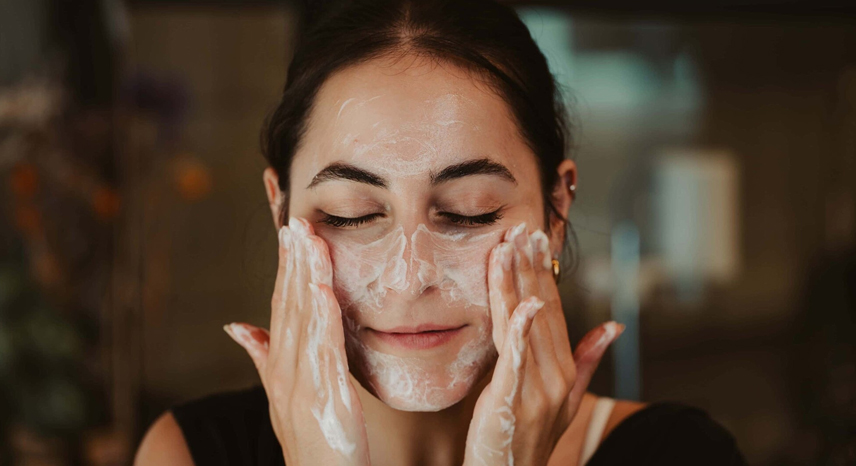Beauty Myths Debunked: Separating Fact from Fiction in Skincare

Introduction
The beauty industry is rife with misinformation, and skincare is no exception. Over the years, countless myths have taken root in popular culture—ideas that are often based on anecdotal evidence, marketing hype, or outdated research rather than solid scientific evidence. From misconceptions about whether oily skin needs moisturizer to unfounded beliefs about “miracle” ingredients, these myths can lead consumers astray, causing them to make decisions that may not be in the best interest of their skin. In this blog, we aim to debunk some of the most prevalent beauty myths by separating fact from fiction. By grounding our discussion in scientific research and expert opinions, we hope to empower you to make informed skincare choices that truly benefit your skin’s health and appearance.
Myth Busting: Popular Beauty Myths vs. Science
One of the most common myths in skincare is the belief that “oily skin doesn’t need moisturizer.” In reality, every skin type requires hydration. Moisturizers help to maintain the skin’s barrier function, regulate oil production, and prevent dryness that can lead to increased oil production. When oily skin is stripped of moisture, it often compensates by producing even more oil, which can exacerbate acne and other issues. Dermatologists stress that using the right type of moisturizer—preferably a lightweight, non-comedogenic formula—can actually help balance oily skin and maintain a clearer complexion.
Another persistent myth is that “natural ingredients are always better.” While natural ingredients can offer substantial benefits, they are not inherently superior to synthetic ones. What matters most is the formulation and the concentration of active ingredients. For instance, both natural and synthetic forms of vitamin C can be effective antioxidants, but their stability and absorption rates can vary. The key is to rely on products that are backed by clinical research and formulated to suit your specific skin type and concerns rather than simply choosing a product because it is labeled “natural.”
A third common myth is that “expensive products are more effective.” While high-end skincare brands often invest in research and high-quality ingredients, price alone is not an indicator of efficacy. Many affordable products offer potent formulations that rival their more expensive counterparts. The effectiveness of a product is determined by its ingredients, formulation, and how well it addresses your specific skin needs. Consumers should focus on the ingredient list and seek out products with proven, science-backed benefits rather than assume that a higher price means better results.
Ingredient Insights: Clarifying Misconceptions
Skincare ingredients can be a complex topic, and misconceptions abound. One such ingredient is alcohol, which is often demonized in skincare. While certain types of alcohol, such as isopropyl alcohol, can be drying or irritating, fatty alcohols (like cetyl or stearyl alcohol) are actually beneficial. These fatty alcohols are used to emulsify and soften the skin, contributing to a smoother, more moisturized complexion without the harsh effects attributed to their simpler counterparts.
Another ingredient that frequently stirs debate is retinol. Retinol is widely celebrated for its anti-aging properties, yet some individuals fear that it can be too harsh on the skin. The truth is that retinol, when used correctly, is a potent tool for boosting collagen production, reducing fine lines, and promoting cell turnover. However, it does require careful incorporation into your skincare routine, especially for those with sensitive skin. Starting with lower concentrations and gradually building tolerance can help minimize irritation while still reaping the long-term benefits.
The role of hyaluronic acid is another topic often misunderstood. Some people assume that hyaluronic acid is only beneficial for very dry skin, but its unique ability to hold water—up to 1,000 times its weight—makes it an excellent hydrator for all skin types. It works by drawing moisture into the skin and locking it in, leading to plumper, more youthful skin. Whether your skin is oily, combination, or dry, hyaluronic acid can be a valuable addition to your routine.
Expert Opinions: Insights from Dermatologists and Beauty Experts
Leading dermatologists and beauty experts consistently emphasize the importance of evidence-based skincare practices. They advocate for routines that are tailored to individual needs and are built upon a solid foundation of scientific research. Experts agree that understanding your skin type and the specific challenges you face is critical for selecting the right products and treatments.
For instance, dermatologists highlight that moisturizing is crucial for all skin types, including oily skin, to maintain the skin's barrier function and prevent compensatory oil production. They recommend using non-comedogenic moisturizers that are light enough to avoid clogging pores while still providing the necessary hydration.
Similarly, beauty experts point out that ingredient labels can be confusing, and not all “natural” products are created equal. They stress the importance of looking beyond marketing buzzwords and examining the efficacy and stability of the active ingredients in a product. Expert advice often includes guidance on how to gradually introduce active ingredients like retinol and vitamin C into your routine to minimize irritation and maximize benefits.
Furthermore, experts warn against the temptation to jump on every new trend without proper research. The skincare landscape is full of products that promise miraculous results, but the best outcomes come from a routine that is consistent, well-researched, and tailored to your personal skin needs. By focusing on scientifically proven ingredients and strategies, you can build a regimen that not only addresses immediate concerns but also supports long-term skin health.
Practical Advice: Making Informed Skincare Choices
In a market saturated with products and advice, making informed choices is essential. Here are some practical tips to help you navigate the world of skincare:
1. Educate Yourself:
Take the time to research the ingredients in your skincare products. Look for peer-reviewed studies and reliable sources that explain how these ingredients work and what benefits they offer. Knowledge is power when it comes to building an effective skincare routine.
2. Know Your Skin:
Understanding your skin type and its specific needs is crucial. Whether you have oily, dry, combination, or sensitive skin, tailor your routine to address these characteristics. Avoid products with ingredients that have previously caused irritation or breakouts.
3. Start Slowly:
When introducing new products, especially those with active ingredients like retinol or vitamin C, start with a lower concentration. Gradually increase usage as your skin builds tolerance, and always patch test a small area before applying the product to your entire face.
4. Prioritize Consistency:
The best skincare routines are built on consistency. Give products time to work, and avoid switching routines too frequently. Patience is key, as most effective treatments require weeks or even months to show significant improvements.
5. Consult Professionals:
If you’re unsure about which products to use or how to address specific skin concerns, consider consulting a dermatologist or skincare professional. Personalized advice can save you time and help you avoid common pitfalls.
6. Be Wary of Hype:
Not every new trend or “miracle” product will work for you. Focus on products that have scientific backing and have been proven to deliver results rather than following every new beauty fad.
Final Thoughts
The world of skincare is filled with myths, misconceptions, and marketing gimmicks. However, when you base your skincare decisions on scientific evidence and expert insights, you can build a routine that truly enhances your natural beauty. By debunking common beauty myths and understanding the true benefits of essential ingredients, you empower yourself to make informed choices that cater to your unique skin needs.
Remember that true beauty is not just about the products you use but about how you care for your skin on a daily basis. A thoughtful, consistent routine that includes gentle cleansing, effective active ingredients, and protective measures like sunscreen can transform your skin over time. Taking the time to educate yourself and customize your approach is the best way to achieve lasting, beautiful results.
Ultimately, debunking beauty myths and separating fact from fiction allows you to focus on what really matters: nurturing your skin with proven, effective methods. Embrace a skincare routine built on knowledge and scientific evidence, and you’ll not only see visible improvements in your skin but also feel more confident and empowered in your self-care journey.
post

Lifestyle ≠ 02 March
Fashion and Wellness: How What You Wear Can Affect Your Health

Lifestyle ≠ 02 March
Future of Fashion: Exploring the Role of AI and Virtual Reality in Style

Lifestyle ≠ 02 March
The Intersection of Fashion and Music: Style Influences from Iconic Artists

Lifestyle ≠ 02 March

Lifestyle ≠ 02 March
Previous Post
Health and Beauty March 02
The Power of Meditation: Enhancing Beauty and Reducing Stress
Next Post
Health and Beauty March 02
Innovative Beauty Tech: The Latest Gadgets and Apps to Transform Your Routine

